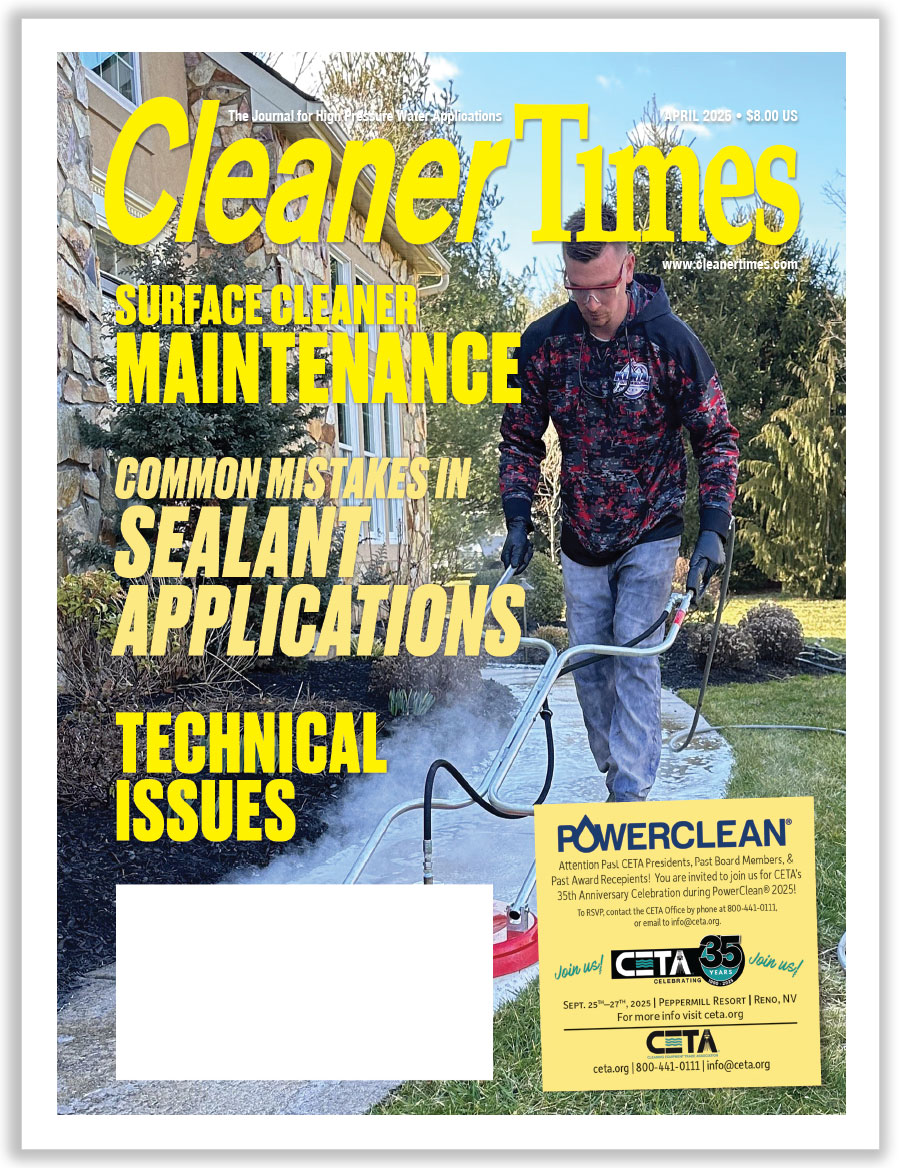
Chapter Seven
Networking
By Beth Borrego / Published November 2020

In this chapter we’re going to turn our attention to one of the oldest forms of marketing there is—networking. What’s the first thing that comes to mind when you hear the word networking? Is it handing out business cards to everyone you meet after giving them a brief synopsis of your business, or is it attending a convention and meeting other business owners from across the country who share similar business interests and concerns? There are many ways to network, and we’ll explore them in this chapter, along with perhaps some newer versions of networking.
Let’s not forget online and video options. Since the outbreak of COVID-19 and the need for reduced gathering sizes and social distancing, many networking groups have moved to platforms such as Zoom for interactive meetings. For seminars and presentations online, Webinar and GoToMeeting have also been popular. Businesses have been able to continue to meet, learn, share leads, collaborate, and overcome the obstacles of face-to-face meetings by using virtual venues like the ones mentioned above.
Many years ago, before the days of the internet, small business owners met face-to-face or called one another on the telephone as a means of networking. These entrepreneurs discussed business, exchanged cards, and shook hands, and this kind of networking often led to business referrals or relationships that we refer to today as B2B. Today’s small business owners have broadened their reach, and, consequently, their ability to network has widened as a result.
Today, there are networking and referral groups like BNI or LeTip that allow business owners to join a chapter and network among other local, small business owners. These groups meet on a specific schedule to facilitate cultivating relationships with other chapter members. The goal is to have each member share referrals with other members so that all of the members in the group profit from referrals. The idea is that each member refers business only to other chapter members even though they might know another small business owner with the same type of business who is not a member. The membership in the chapter is exclusive, so there is no overlap. For example, you should not have two high-rise building window washing companies in the same chapter, although you could get a similar business such as a residential house washing company that also cleans windows. Both wash, but one is commercial and one is residential; and if neither one objects, it could be very beneficial for both members.
BNI International was established in 1985 by Dr. Ivan Misner. It was founded on the philosophy of what Dr. Misner refers to as “Givers Gain,” which simply says, I’ll give you business if you give me business. BNI members typically carry the business cards of their fellow chapter members and hand them out with referrals when an opportunity presents itself.
LeTip International was founded in 1978, and its chapters meet once a week to exchange business leads, build relationships with other chapter members, and hone their presentation skills as well as to simply enhance their networking skills.
Local Chamber of Commerce memberships are another resource that offer small business owners an opportunity to meet and mingle with other local business owners. Meetings over breakfast, lunch, or dinner are common along with annual or special events for members. Events benefiting local charities are also common and provide members an opportunity to give back to their community among their business peers. This kind of good will is typically appreciated by those receiving the donated services as well as by the general public and may influence consumers’ purchase decisions, which is beneficial.
Trade associations are plentiful for small, blue-collar business owners. Many, but not all, are non-profit. There are associations for power washers, painters, landscapers, plumbers, electricians, HVAC technicians, window cleaners, and the list goes on. These associations hold conventions, some annually, which include seminars on various topics of interest designed to address the needs of small business owners. In some cases, the seminar selection may be aimed at newer businesses, while in other cases there might be a more diverse variety of topics. In addition, there is typically a luncheon or banquet as well as other roundtable networking opportunities during the convention. Most of these conventions offer an exhibitor trade show, where industry vendors rent booth space and display their latest products or equipment. Often these items are offered at reduced prices, commonly known as show specials, for the duration of the event. The exhibitors are eager to share valuable information with attendees and the relationship is mutually rewarding.
Meeting other members of a trade organization can be very beneficial, not just for referrals but because there may well come a time when you’ll have a business question that has you stumped, and you’ll need a sounding board. At times like these, the networking relationships you’ve made can be extremely valuable to your business. It’s true that you don’t have to be a member of an organization to form a business relationship like that, and membership in an organization is not for everyone, but many business owners find it beneficial. Below is a short and by no means all-inclusive list of some of the various organizations that are out there. Depend-ing on the services your business offers, it may make sense for you to belong to one or more of them, or to none of them if you do not believe it makes sound business sense for your company. This list is a small representation of some of the older and more established organizations representing a variety of trades today.
PWNA—Power Washers of North America
www.pwna.org
Established in 1992, the association holds an annual convention and trade show in conjunction with CETA and offers certification classes on topics such as the following: wood restoration, house washing, roof cleaning, kitchen exhaust cleaning, fleet washing, and environmental cleaning.
CETA—Cleaning Equipment Trade Association
www.ceta.org
Established in 1990, CETA offers an annual convention and trade show. For the past two years CETA has co-located with PWNA and will do so again September 8–11, 2021, in New Orleans, LA. CETA provides educational seminars that will help companies stay current on business and cleaning technology. In addition, CETA provides PC100 Product Performance Certification for manufacturers as well as certification for distributors.
IWCA—International Window Cleaning Association
www.iwca.org
Established in 1989, the association offers an annual convention and trade show. The IWCA Safety Certification Program provides safety training in accordance with the IWCA/ANSI I-14 Safety Standard. Applicants must pass three rigorous online exams with a score of 90 percent or higher before being allowed to take the final proctored exam.
PCA—Painting Contractors Association
www.pcapainted.org
Established in 1884, the association offers an annual convention and trade show. The PCA offers a variety of flexible options designed to educate today’s busy business owners. There are PCA Contractor College courses, live webinars online, PCA accreditation, and an online accreditation dashboard.
IKECA—International Kitchen Exhaust Cleaning Association
www.ikeca.org
Established in 1989, the association offers an annual convention and trade show. IKECA offers a highly specialized certification called the Certified Exhaust Cleaning Specialist (CECS) Exam. To renew a certification, the member must periodically complete continuing education requirements.
WJTA-IMCA—Waterjet Technology Association-Industrial & Municipal Cleaning Association
www.wjta.org
Established in 1983, the association offers an annual convention and trade show.
ANLA—American Nursery & Landscape Association
www.anla.org
Established in 1878, the association offers an annual convention. Garden Center University is a five-semester, mini-MBA for garden center managers, designed to improve profit and market position for companies small and large, new and seasoned businesses.
NAHB—National Association of Home Builders
www.nahb.org
Established in 1942, a flexible educational schedule is listed online. NAHB offers courses at locations throughout the United States as well as online via webinars.
BSCAI—Building Service Contractors Association International
www.bscai.org
Established in 1965, the association offers an annual convention and trade show. BSCAI offers certification as either a Certified Building Services Executive or a Registered Building Services Manager. They also offer webinars.
PHCC—Plumbing-Heating-Cooling Contractors Association
www.phccweb.org
Established in 1883, the association offers an annual convention and trade show. PHCC offers a variety of in-depth education and training options, including online, covering topics from business management and journeyman training to apprentice training.
AGC of America—The Associated General Contractors of America
www.agc.org
Established in 1918, the association offers an annual convention and trade show. It offers extremely extensive training; please see the website for details.
Roundtables are another popular networking avenue, at least in the power washing industry. Roundtables are meetings that may be held by either vendors or contractors. Typically, they have a schedule of events, but at a more relaxed and informal pace than a convention, and they’re usually less expensive to attend. There may be meals served and guest speakers who hold short seminars, as well as small breakout sessions around tables for specific topics of discussion. For example, you might have five tables with a folded paper tent in the middle of each one indicating that table’s topic. Conversations about wood care, fleet washing, flatwork, building washing, and kitchen exhaust hoods are just a sample of the topics that could be discussed. Attendees migrate from table to table participating in what is of interest to them. The table will normally have one or more people sitting there who are industry veterans, fielding questions that newer businesses may have.
The more structured seminars offered may feature either vendors or contractors as guest speakers. Today, seminars are also being held online via Webinar and GoToWeb for meetings. Typically, you register and are emailed a link to log in. Meetings are often presented in listen-only mode, so you will hear the speaker and see the slideshow. For example, with Webinar you can press Print Screen and take a screen shot of any slide you like, and it saves it to your desktop for later reference. A dialog box is available for you to type questions for the speaker. In many cases those questions not covered during the seminar will be addressed after the seminar is over during a question and answer period. In some cases the presenter will make a copy of the seminar available for some period of time after the seminar is over so attendees may review it if needed.
Some of the in-person events are one day long, but there are also multi-day roundtable events that offer wonderful information. Contractors who drive to these events usually network about their equipment setups as well, taking pride in showing off their rigs and enthusiastically exploring other companies’ set-ups in an effort to get ideas about improving theirs or building a new one.
The attendees typically vary from seasoned business owners to those who are new to business. Over time, many of these contractors form relationships that extend beyond the annual roundtable events they attend, and many contractors call one another for advice or to pass along business leads that are outside of their service area. It’s an energizing feeling to come away from one of these events and be ready to plunge into another season, perhaps inspired by something you have just learned, a fellow contractor you have spent time discussing business with, or a new product you have seen demonstrated that you believe your clients would benefit from.
Over time technology has advanced, making it possible to network online when it might not be possible to get together face-to-face with your peers. Online bulletin board system (BBS) forums and peer groups on Facebook are examples of places online where many small business owners may occasionally turn to interact with fellow professionals. Forums are available online for just about any area of specialty imaginable. They are free to join and full of archived information. A note of caution, however, would be to do thorough research when looking for solutions to questions that you may have. Not all posts are accurate, and no forum is perfect. Still, there is a wealth of information online and great networking opportunities. It’s also where you’ll find information on conventions that you may wish to attend.
Networking also provides business owners with the ability to explore potential new service offerings with reduced risk. Conventions, trade shows, roundtables, and research on social media and the forums allow business owners to network with other owners who already offer a service they are considering implementing themselves. This insight is extremely valuable and helps owners avoid some of the challenges and pitfalls associated with entering an unfamiliar market, thereby increasing the likelihood of successfully entering that service segment.
Of course, networking and referrals often go hand in hand, with leads for new business being a measurable key benefit. Sometimes business owners within the same industry are hesitant to pass leads to one another, believing that competition is competition. Realistically, though, aren’t there jobs you would rather not perform that are perhaps a little far away for the size of the job or aren’t within your main area of expertise? In cases like these, it makes sense to pass leads to a company that you have an established relationship with.
Lead sharing can also be very successfully accomplished with business owners whose primary trade is unlike your own. For example, if you own a pressure washing company, you might get asked for referrals for plumbers, electricians, landscapers, and so forth. Passing leads between companies that have no competitive ties is smart business. Just be sure you’re referring your client to a reputable company, or it will reflect poorly on you.
Many business owners purchase a membership in an organization and believe the floodgates are going to open and the phone will ring constantly with referrals simply because they are listed as members. This is not the mindset of a marketer, nor is it realistic. In past chapters, we have discussed branding and positioning. Making any membership or affiliation a part of your brand image and using it to help position your company in the marketplace should become a part of your overall marketing plan. The logos should be on your website and materials, and when you speak with clients and prospects, the mention of how the organization benefits your company, and in turn the client, should be a natural part of the conversation. When you’re network-ing, remember to encompass the strategies you have learned thus far regarding branding and image, and you’ll hit the mark every time. Speak with enthusiasm and confidence, and your story will become one others want to share as well.






